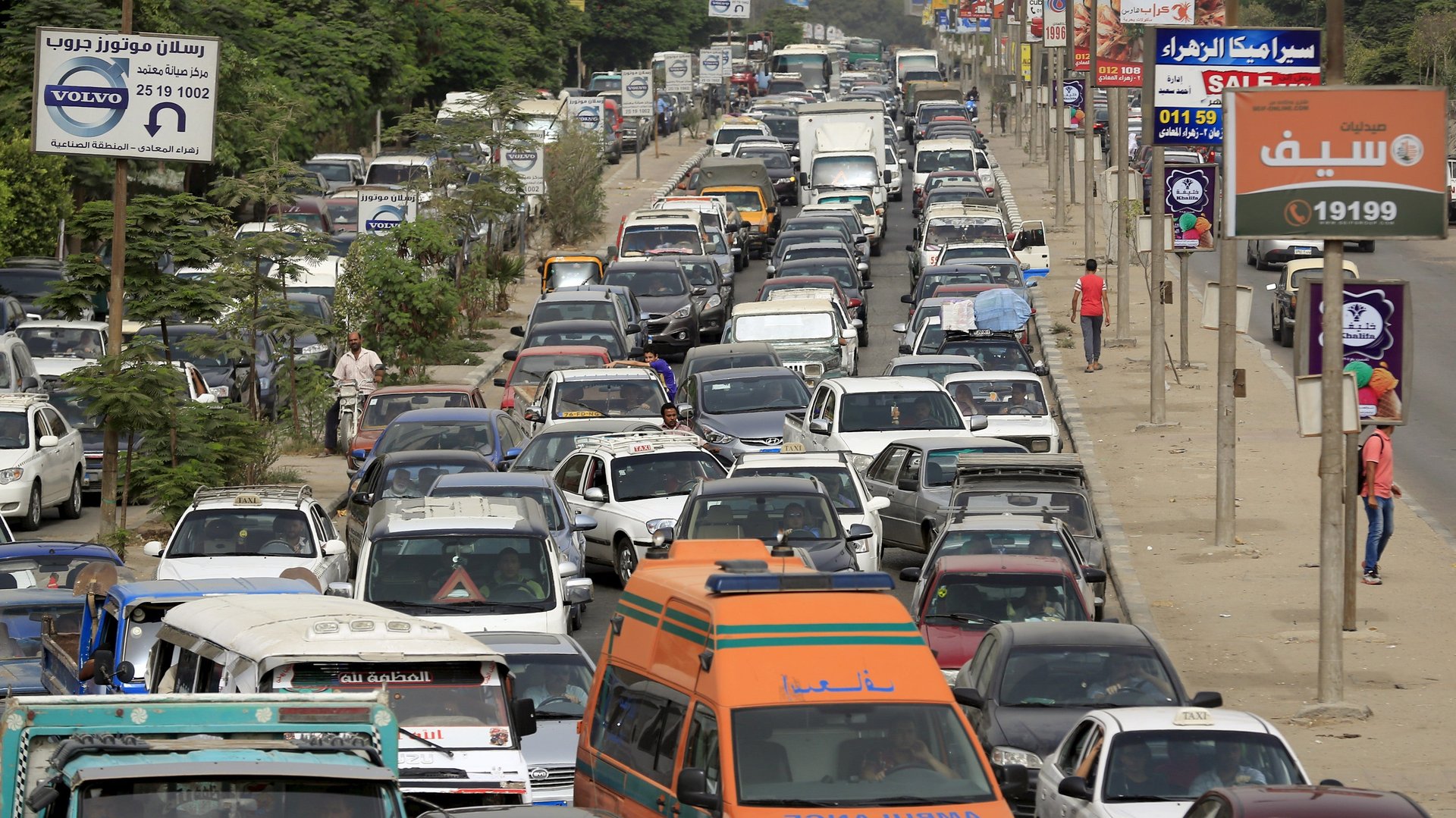Now it’s Cairo taxi drivers’ turn to say they’re fed up with Uber
Dozens of Cairo taxi drivers protested this week against Uber and others ride hailing apps such as Dubai-based Careem.


Dozens of Cairo taxi drivers protested this week against Uber and others ride hailing apps such as Dubai-based Careem.
In a widely shared list of demands circulated online ahead of the small protest that caused traffic disruption in the upmarket Mohandeseen area on Thursday, the drivers complained Uber and Careem had undercut “the rights of taxi drivers” by “operating illegally”.
The protest came just days after Nairobi’s taxi drivers made an aggressive push-back against the $50 billion ride-sharing app’s presence in Kenya.
Perhaps due to the enforcement of two-year old laws restricting assembly in Egypt the anti-Uber protests were relatively small by Cairo standards. came on the back of others worldwide including in Johannesburg and Paris.

When asked about the latest protests in Cairo, Jambu Palaniappan, Uber’s regional manager for Middle East and Africa, said “there have been a number of taxi drivers who have joined as Uber driver partners to boost their income and we would welcome more who wish to join their colleagues”.
The service has been in Cairo for over a year recently expanding to Alexandria. Palaniappan estimates that there have been over 1 million rides clocked up.
Cairo’s notorious bottleneck traffic and poor service from taxis has prompted many Egyptians to turn to Uber and Careem. Around 70% of traffic on the roads are private cars and 45,000 people share a square kilometre making the city one of the world’s most densely populated. The World Bank estimates that $8 billion is wasted every year because of congestion in Cairo.
For taxi driver Nessim Abdel Malak, 36, he doesn’t see such apps as taking business directly away from him currently but is fearful that their murky legal status could affect competition.
‘They (Uber drivers) should have to pay insurance and taxes just like us” he told Quartz. “I am totally against this idea”.
Abdel Malak estimated that he has to pay around 2000 Egyptian pounds ($255) for a professional taxi driver’s license and mandatory union fees. “The Uber drivers can offer more competitive rates compared to us because they have lower overheads” he lamented.
Jon Argaman, a Penn University professor who has extensively researched Cairo’s chaotic urban planning policies, said, “the core issue is that there are just more private cars than the road infrastructure can handle”.